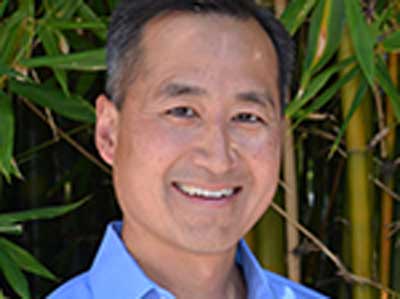
Resident Faculty, Clark Kerr Campus
rrhew@berkeley.edu | 510.643.6984
Robert Rhew is an Associate Professor in the Department of Geography and the Department of Environmental Science, Policy & Management. He is also a core member of the Berkeley Atmospheric Sciences Center and a faculty advisor for the Global Environment Theme House in Residential Life. His field of research is atmospheric science and trace gas biogeochemistry. Professor Rhew lives in Clark Kerr with his wife, Dr. Tamara Mau, and their two sons. Dr. Mau works in the Integrative Biology department as the laboratory instruction supervisor, and she has a Ph.D. in marine biology. Together, this Cal couple can discuss with students about a range of scientific research and classes offered on campus.
More from Professor Rhew:
“The Resident Faculty program provides a “small college” community within the larger university setting. My wife and I have dedicated our professional lives to Cal and its students, and becoming a part of the resident faculty program is a logical next step as part of that commitment. Even as a professor, I am ever aware that much of the learning in college occurs outside the classroom, in the spaces where the students live, in the times when they are not studying. As resident faculty members, we can play an unobtrusive supporting role for students who are making one of the critical transitions of their lives. I look forward to introducing students to research and learning opportunities on campus, to the regional parks of the East Bay, to life management skills, and to science education resources.”